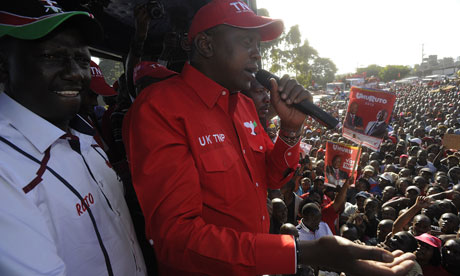CANCER is treatable and curable if detected early according to medical experts in the country who spoke at a symposium in focus of theme of the 2013 World Cancer Day: “Dispel damaging myths and misconceptions about cancer: Did You Know?”.
At the event organised by the Nigerian Institute of Medical Research, NIMR, Lagos State Commissioner for Health, Dr. Jide Idris said the belief that cancer was a death sentence was not only incorrect but popularise by nasty experiences of those who present their cases late in hospitals.
Idris who was represented by the State Acting Director of Disease Control, Dr. Bakare Omowumi also dismissed the misconception that cancer is a disease of the wealthy, adding that, “the disease is rampant in both middle and low income countries of the world, including Nigeria.”
Also speaking, Director General, NIMR, Professor Innocent Ujah, lamented that cancer had become a hydra-headed disease that needs support of every Nigerian to overcome.
According Ujah, studies have shown that common cancers of public health importance in Nigeria include breast and cervical cancers among women of reproductive age while prostate cancer among adult males as well as cancer of the lungs.
He maintained that early detection and appropriate interventions are key to cancer prevention and control while urging all women of reproductive age and men aged 40 years and above to avail themselves of available screening methods rather than skepticism about whether cancer is real, adding that “by so doing that Nigeria will reduce the cases of new cancers to acceptable levels”.
Chief Medical Director, LUTH, Prof. Akin Osibogun, said the line between communicable diseases and non-communicable diseases such as cancer, was becoming thinner thanks to advanced research and care, urging the NIMR to research into breast cancer so as to assist scientists develop a vaccine.
Former Provost,College of Medicine, University of Lagos, CMUL, Prof. Wole Atoyebi, said most women die of cancer because 75 per cent of cancer cases diagnosed at LUTH are at advanced stage when only palliative measures can be rendered.
He noted that traditional healers and faith-based organisations were causing great harm in the fight against cancer as they often deceive cancer patients at the early stage of the ailment when it could have been cured in hospitals into patronizing them only to release these patients to hospitals when it is too late. LASUTH Consultant General Surgeon, Dr. Folusho Omodele, called for mass education, adding if detected early, cancers could be cured at minimal cost.
At the event organised by the Nigerian Institute of Medical Research, NIMR, Lagos State Commissioner for Health, Dr. Jide Idris said the belief that cancer was a death sentence was not only incorrect but popularise by nasty experiences of those who present their cases late in hospitals.
Idris who was represented by the State Acting Director of Disease Control, Dr. Bakare Omowumi also dismissed the misconception that cancer is a disease of the wealthy, adding that, “the disease is rampant in both middle and low income countries of the world, including Nigeria.”
Also speaking, Director General, NIMR, Professor Innocent Ujah, lamented that cancer had become a hydra-headed disease that needs support of every Nigerian to overcome.
According Ujah, studies have shown that common cancers of public health importance in Nigeria include breast and cervical cancers among women of reproductive age while prostate cancer among adult males as well as cancer of the lungs.
He maintained that early detection and appropriate interventions are key to cancer prevention and control while urging all women of reproductive age and men aged 40 years and above to avail themselves of available screening methods rather than skepticism about whether cancer is real, adding that “by so doing that Nigeria will reduce the cases of new cancers to acceptable levels”.
Chief Medical Director, LUTH, Prof. Akin Osibogun, said the line between communicable diseases and non-communicable diseases such as cancer, was becoming thinner thanks to advanced research and care, urging the NIMR to research into breast cancer so as to assist scientists develop a vaccine.
Former Provost,College of Medicine, University of Lagos, CMUL, Prof. Wole Atoyebi, said most women die of cancer because 75 per cent of cancer cases diagnosed at LUTH are at advanced stage when only palliative measures can be rendered.
He noted that traditional healers and faith-based organisations were causing great harm in the fight against cancer as they often deceive cancer patients at the early stage of the ailment when it could have been cured in hospitals into patronizing them only to release these patients to hospitals when it is too late. LASUTH Consultant General Surgeon, Dr. Folusho Omodele, called for mass education, adding if detected early, cancers could be cured at minimal cost.

















